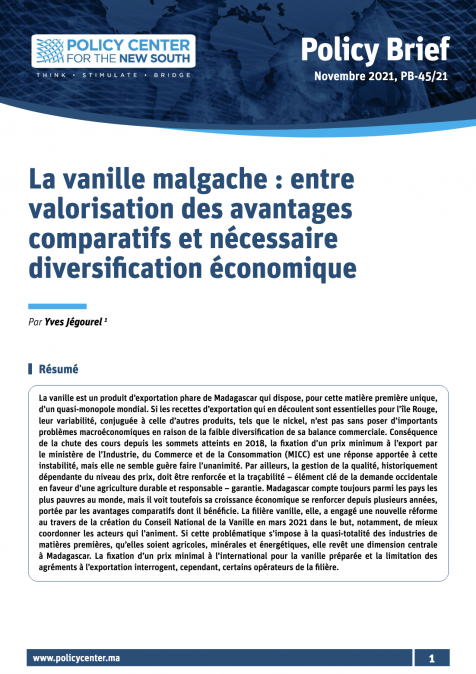L'état de l'économie mondiale et ses implications pour les économies de marché émergentes
Président
- Karim El Aynaoui, président exécutif, Policy Center for the New South (PCNS)
Discutants
- Erik Berglof, économiste en chef, Banque asiatique d'investissement pour les infrastructures (AIIB)
- Roberto de Ocampo, Président-directeur général, Philippine Veterans Bank
- Roberto de Oliveira Campos Neto, Gouverneur, Banque centrale du Brésil
- Jean Daniel Gerber, président du conseil d'administration, Swiss Investment Fund Emerging Markets (SIFEM)
- Indermit Gill, économiste en chef et premier vice-président pour l'économie du développement, Groupe de la Banque mondiale
- Nialé Kaba, ministre du plan et du développement de la Côte d'Ivoire
- Haruhiko Kuroda, ancien gouverneur de la Banque du Japon (BoJ) - En ligne
- Mustapha Nabli, PDG, Bureau d'études économiques de l'Afrique du Nord (NABES)






